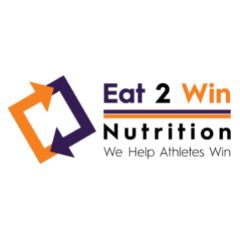Fueling Education
Q&A for Session #5
Mindset and Fueling
Sports Nutrition Symposium 3.0
Tuesday June 22nd, 2021 @ 7pm CST
In this presentation viewers will be guided through an understanding of the principles of Self-Determination theory as it applies to empowering high-school athletes to make productive behavior changes related to their nutrition. In addition, practical and applied considerations will be offered on how to foster a learning environment that promotes ownership and the development of skills needed for athletes to make such changes.
All live sessions are free to attend. If you want lifetime access to the sessions from Sports Nutrition Symposium 1.0, 2.0 and 3.0 then check out the VIP Pass!
- How do you build trust with athletes?
- Every single athlete will have to take a different approach. You'll have to get to know them in order to build the trust and bonds. Ask questions about their sport and show interest in their sport and them as an individual. If they don't give you a lot of info, then talk to the other coaches to try and gain some insight into the athlete and how you may be able to connect.
- Can you share the vending machine company?
- Local company (unsure if they can share the name).
- How do you like working with high school athletes compared to collegiate/professional?
- Every level of athlete will have it's highs and lows. High school level you get to see your athletes go into so many different directions. You're able to have impact on the future of athletes and possibly those that go into professional sports. It's great to have the impact on young athletes for when they advance into college and help them succeed at higher levels.
- How frequently we can take workshops with young athletes at a residential school?
- Follow this website to request further information on programs: https://www.imgacademy.com/boarding-school/athletics
- How do you approach athletes that may speak English well or at all? Translators or interpreters?
- Can always reach out to see what translators are available. Also communicate with other coaches and team mates to see if they're able to translate for their fellow athlete. We also create slides and handouts in other languages so those that speack another language can better understand certain discussions. Even google translate has been a very helpful tool. We've been able to come up with workarounds to address this area.
- How often do you point the athletes to resources, versus encouraging them to explore?
- Post-workshop I will always have resources available if the athlete would like to have a more in-depth understanding. Try to always have a secondary options available for athletes to continue learning. We also use Coach Now where we can post videos to review and learn certain topics.
- Can you tell us a bit about how you talk about fast food and pizza with athletes? High school kids tend to give me a lot of "yeah, yeah/wink, wink" when I make suggestions on best choices.
- Some athletes order out almost all meals. The best thing we do is to start really small with them. Try to subsititute 1 small thing to switch out to make a fast food meal healthier. example, swap water for a soda. Instead of fries, can we do salad or yogurt parfait. We don't categorize good/bad foods. We look at high quality food vs low quality food and relate it to athletes feeling and performing a certain way. It's always up to the athletes to make the decision.
- Recommendations for dealing with coaches who do not want to adopt some of your nutritional advice/interventions.
- Can't force the coach to change their mind, but serve the athlete on a group or individual basis to try and help them implement it. Try and meet the coach at a halfway point.
- Do you have any handouts or resources to give HS athletes who don't have all the wonderful things at IMG?
- Eat2Win! Utilize a great group of RDs to consult out to these levels of D2 and D3 high school levels. We try to take advantage of outside groups, webinars, NCSA, try to get your word out at a free or low cost to help those athletes have some quality resources. You can try to equip your athletes to make informed decisions, but you cannot force an athlete to change habits. Many of these athletes still live with their parents. So, sometimes helping educate the parents to make the changes at home for the athletes to implement changes.
- What qualifications do you look for with the culinary staff? Do you have a high turnover?
- Unable to answer this. Possibly encourage them to check out --> https://www.imgacademy.com/about-img-academy/careers
- Private schools tend have more resources then public school and cyber schools. how do we implement at public and cyber school. our contact time is much shorter and dealing with them eating at home and more outside factors.
- Eat2Win! Utilize a great group of RDs to consult out to these levels of D2 and D3 high school levels. We try to take advantage of outside groups, webinars, NCSA, try to get your word out at a free or low cost to help those athletes have some quality resources. You can try to equip your athletes to make informed decisions, but you cannot force an athlete to change habits. Many of these athletes still live with their parents. So, sometimes helping educate the parents to make the changes at home for the athletes to implement changes.
- Do you have athletes that observe cultural/religious or other events (such as Ramadan) and if so, how do you approach any of those different kind of challenges?
- Several of our athletes practice Ramadan. Each athlete has an intake assessment when they first arrive to IMG where they disclose cultural practices, allergies, special diets, etc. Then you sit with the athlete 1:1 to come up with a fueling and hydration plan that will best suit them.
- Our students tend to go to the guidance counselor and the guidance counselor does not share because of confidentiality, how do work with the counselor?
- Difficult question because it depends on guidelines and rights of the system and athlete. When confidentiality allows itself to recieve disclosed info from a counselor, frame it the best way for the athlete, make sure to not coerce someone to provide you with confidential info. We always try our best to maintain confidentiality with our athletes.
- How do you manage athletes with anxiety?
- Identify athletes with clinical indications of anxiety. We're trained to identify, but then refer to other professionals to receive the services they need if it is clinical anxiety. If they have performance anxiety, we try to understand and address the elements that make that athlete anxious and help develop self regulation tools for that athlete in order to encourage confidence.
- How do you address the growth curve seen in HS students and their changing nutritional needs - which may also change the body type supportive to their performance?
- Every athlete is different, so keep a communication with them in order to keep on task.
- Have you run into parents who have their kids on inappropriate diets like keto?
- Some come in with many supplements, vegan diets, etc. Don't attack parents, but ask a lot of questions to understand their reasoning. Then put them in the position to provide them with qualified resources to lead them to the right direction.
- Follow up to that for Greg - how to help athlete w/out undermining trust and love to parents?
- Share the things that you talk with the athlete with their parents. Encourage athletes to share the info with their parents. We find this is one of the best ways to help athletes gain support of parents. We usually talk generally how to manage pressure and create overall strategies to help do what's best for the athlete. Also we can communicate the parents directly.



Facebook comments